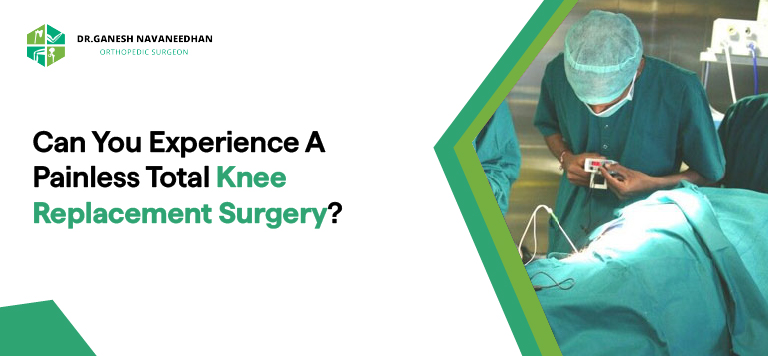- +91 62384 78716 +91 99475 78797
-
Sasthamangalam, Trivandrum
Sasthamangalam, Trivandrum

The most frequent reason patients have been put off surgery due to knee arthritis in its final stage is the fear of having surgery. It is a normal thing to be afraid of the unknowable, it’s the fear of pain that deters individuals from going through any procedure. The widespread misconception that Knee replacement procedures will be more difficult than other surgery just adds to the anxiety. We have however had many patients say that their experience with Knee Replacement surgery was painless. In this post, I will discuss the management of pain after Total Knee Replacement surgery.
There have been major improvements in pain management after complete knee replacement in the past 10-15 years because of advancements in the use of regional nerve block as well as spinal blockages, among other techniques for pain management.
When you undergo knee surgery, the anesthesiologist could use either a general anesthetic, which means you’ll fall asleep and a localized anesthetic that makes you completely numb from waist to hip but you’re still awake. In the course of surgery, you’ll be administered a mix of painkillers for the knee that will provide the relief of pain and reduce swelling.
Additionally, you will receive epidural anaesthesia with varying amounts to ensure you receive enough pain relief but without reduction in the strength of your muscle in the legs. This allows you to walk right following surgery with no discomfort, and to also perform the exercise routines for physiotherapy.
Additionally, post-op medicines such as oral and intravenous formulations give relief from discomfort. Transdermal patches that are now available provide medicines at a steady speed, thereby reducing the requirement for oral medication even.
Copyright © 2025 Dr. Ganesh Navaneedhan. All Rights Reserved. | Designed By Harvee healthcare